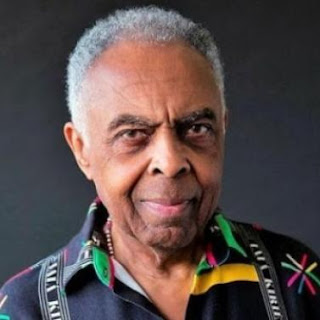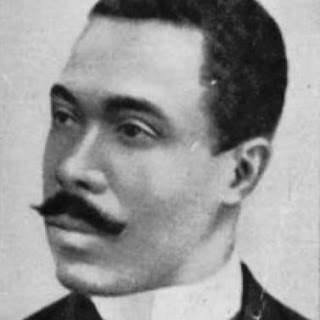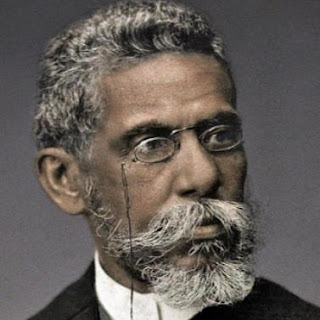Cruz e Sousa: Biography and Poems | Brazilian Poetry
Biography.
Antiphony
Oh pale, white Forms, clear Formsof moonlight, snow, and mist!...
Oh vague, fluid, translucent Forms...
Incense burning on altars...
Forms set with pure, bright lights
of the love of Virgins and vaporous Saints...
Wandering brilliances, drenched coolnesses
and sorrows of lilies and of roses...
Indescribable music from heaven,
harmonies of Color and of Fragrance...
Sunset's hesitant last moments,
Requiem for the Sun in Light's Pain...
Visions, psalms and peaceful hymns,
muffled sounds of organs, sobbing...
Suspension of sensual malices
morbid, ecstatíc, subtle and soothing...
Infinite spirits, scattered,
inexpressible, Edenic, ethereal,
fertilize the Mystery of these verses
with the ideal flame of all mysteries.
Let the Dream's bluest gauzes
be bright let the Stanza be exalted
and let the emotions, the chastities
of the soul of Verse, sing in these verses.
Let the gold pollen of the finest stars
fill and inflame the rhyme with clear passion...
Let the purification of alabasters glisten
sonorously, luminously.
Primitive forces, essences, grace
in women's bodies, kindnesses...
Ali those auras that flow from Ether
in waves of rose-scented, gilded currents...
Crystals flawed by eager flashes,
desires, vibrations, longings, gusts
of courage, bitter triumphs, dark conquests,
the most peculiar quiverings...
Dark flowers of boredom and vague flowers
of empty, unwholesome, elusive loves...
Crimson depths of old sores,
open, bleeding in rivers...
Let all! alive, nervous, hot, and strong,
in the Dream's fantastical whirlpool
pass singing before Death's occult
confusion and terrible profile...
Translated by Nancy Vieira Couto
Acrobat of Pain
Chortle, laugh, in a laughter of stormlike a clown who, lanky and nervous,
laughs, in an absurd laughter, inflated
with violent irony and pain.
With that atrocious and bloody guffaw—:
rattle the jester's bells, convulsing.
Jump, puppet: jump, clown, pierced
by the stertor of this slow agony—
You're asked for an encore, and that's not to be sneered at.
Come on! Tighten the muscles up, tighten up
in these macabre steel pirouettes...
And though you fall on the ground, quivering,
drowned in your hot and seething blood,
laugh! Heart, saddest of clowns.
Translated by Flavia Vidal
Sacred Hatred
Oh, my hatred, my majestic hatred,my holy and pure and benevolent hatred,
annoint my forehead with your great kiss,
render me humble and render me lofty.
Humble, but generous to the humble:
lofty to those beings without Desire,
without Goodness, without Faith, without the gleam
of the fertilizing, affectionate sun.
Oh, my hatred, my blessed standard-banner
waving in the infinity of my soul,
beyond other sacred banners.
Sound, hatred: good hatred! Be my shield
against the villains of Love, who defame everything,
from the seven towers of the mortal Sins!
Translated by Flavia Vidal
Machado de Assis: Biography and Poems | Brazilian Poetry
Biography.
Vicious Circle
The firefly danced in the air impatiently:"Oh how I wish that I could be that yellow,
That burns in the eternal blue, a candle far!"
And yet the star gazed on the moon with jealousy:
"If only I could copy such transparency,
Which, from the Grecian column to the Gothic sill,
Has contemplated lovers' faces sighingly!"
And yet the moon gazed on the sun with bitter will:
"Oh misery! If l could be that giant ball,
Immortal clarity, the sum of all that's light!"
The sun, though, leans his brilliant chaplet o´er the wall:
I´m burdened by this numen's aureole bright…
Pm wearied by this blue, unbounded parasol…
Why could I not be born a firefly at night?"
To Carolina
My sweet, here at the foot o fyour last bedIn which you're resting now from your long life,
I've come and always will, poor dearest wife,
To bring you the companion's heart you wed.
It pulses from affection tried and true
And which, despite all human drudgery,
Had made our life's existence ecstasy
And brought our home a world for me and you.
I bring you flowers,—remnants plucked now faded
From earth that saw us jointly walk this way
And now has left us dead and separated.
If l, within my wounded eyes today
Still carry thoughts of life I´d formulated,
Those thoughts once lived, but now they've gone away.
The Devil´s Wedding
In ímitation of the German
Satan had the thought one dayTo marry. How original!
He wished no ugly woman, nay,
A faithful soul, and virginal.
Take the counsel of a friend,
No marriage, Beelzebub, pursue;
Because a woman, as she's human
Is finer more genteel than you.
But he resolved upon this project,
Desired to see it come to pass,
And so he sought to win the object
That met his tastes, a bonny lass.
Take the counsel of a friend,
No marriage, Beelzebub, pursue;
Because a woman, as she's human
Is finer more genteel than you.
He cut his nails, he cut his tail,
He cut his horns, and then somehow
Our devil turned into a male
A hero of all heroes now.
Take the counsel of a friend,
No marriage, Beelzebub, pursue;
Because a woman, as she's human
Is finer more genteel than you.
To marry was his sole desire;
He traveled over sea and land,
He found a beauty to inspire
And made arrangements for her hand.
Take the counsel of a friend,
No marriage, Beelzebub, pursue;
Because a woman, as she's human
Is finer more genteel than you.
He was willing, she agreed,
They joined each other's hands asxone,
In harmony they did succeed
To tie the knot; the deed was done.
Take the counsel of a friend,
No marriage, Beelzebub, pursue;
Because a woman, as she's human
Is finer more genteel than you.
A year went by, and Satan found,
No parts grew back, nothing at all,
No nails, no tail that curved around ...
Except his horns, yes they grew tall.
Take the counsel of a friend,
No marriage, Beelzebub, pursue;
Because a woman, as she's human
Is finer more genteel than you.
Translated by Frederic G. William
Lêdo Ivo: Biography and Poems | Brazilian Poetry
Biography.
The Bats
Bats hide in the eaves of the customs house.But where do the men hide who also fly
their whole lives in the dark,
bumping against white walls of Love?
Our father´s house was full of bats
hanging like lanterns from the old rafters
that supported the roof threatened by the rain.
“These children such our blood”, my father would sigh.
What na Will throw the first Stone at that mammal
who, like himself, is nourished by the blood of animals
(my brother! my brother!) and, banded together, demands
the sweat of this kind even in the dark?
Man hides on the halo of a breast as Young as the night;
on the down of his pillow, in the lamp light
man watches over the golden coins of his love.
But the bat, sleeping like a pendulum, only safeguards the offended day.
When He died, our father left us (myself and my eight brothers)
his house wher it rained at night through the broken tiles.
We redeemed the loan and saved the bats.
Now they wrangle between the walls: blind like us.
Translated by Kerry Shawn Keyes
The Cloak
On the floor of my childhoodI'll find everything I've lost:
the blue cloak, the picture book,
the photograph of the dead brother
and that cold mouth of yours, your cold mouth.
The blue cloak on the floor of my childhood
covers objects and hallucinations.
A blue cloak, the deepest of blues
found nevermore, for
such a blue exists no longer.
And to all of you, pure or fallen
virgins in winter, so abhorrent in summer,
1 ask of you this deep blue:
cover me with this cloak on my dying day.
When 1 am dying, you can all be sure
a blue cloak, the deepest of blues,
will envelop the whole of me, from head to toe.
Translated by KCS Tolentino
Sonnet
Beneath the cancioneiros gentle shadeThough youthful syet, a haven I behold,
For I am tired of time and cannot mould
My verse in metres dignified and said,
As my last verse should be;/s the first I made
Are sung already, but without sthe old
Accent upon ther purê ando on the bold
Of songs eternal that will never fade.
I follow the rivers tha sing upon their way
The imortal slyric of the sser outcastsl,
Who, being in Babylon, sighs for Mandalay;
Taking a woman with me, I shall stray
And shall become, while plunging in the past,
More modern and more ancient everey day.
Translated by Leonards S. Downes
Ricardo Aleixo: Biography and Poems | Brazilian Poetry
Biography.
Ricardo Aleixo (born in 1960 in Belo Horizonte) is a decidedly interdisciplinary artist. He is a poet, essayist, editor, visual artist, sound designer, singer, composer and performer. He co-founded and curates the FAN (Festival de Arte Negra), the major art and culture festival of the African Diaspora in Brazil.He is the author of six books, including his latest Pesado demais para a ventania: antología poetica (Todavia, 2018). Best known for his poetry’s visual and social characteristics, his work draws connections between concrete poetry and ethno-poetry.My Man
I am whatever you think a black man is. You almost never think about black men. I will always be what you want a black man to be. I am your black man. I’ll never be only your black man. I am my black man before I am yours. Your black man. A black man is always somebody’s black man. Or they are not a black man at all, but a man. Just a man. When they say that a man is black, what they mean is that he is more black than he is man. But all the same, I’m a black man to you. I’m what you imagine black men to be. I can spill onto your whiteness the blackness that defines a black man in the eyes of someone who is not black. The black man is the invention of the white man. It is believed that to the white man falls the burden of creating all that is good in the world, and that I am good, and that I was created by whites. That they fear me more than they fear other white people. That they fear me, but at the same time desire my forbidden body. That they would scalp me for the doomed love they bear for my blackness. I was not born black. I’m not black every moment of the day. I am black only when they want me to be black. Those times that I am not just black, I am as adrift as the most lost white person. I am not just what you think I am.
Translated by Dan Hanrahan
Shango
The one who
hurls stones
of lightning
against the house
of the meddler.
Leopard,
husband of Ọya.
Leopard,
son of Yemoja.
Shango boils
yams
with the wind
that leaves
his nostrils.
He gives a new name
to the Musulmi.
He is still alive
when they think
he is already dead.
Orisha who kills
the first
and who kills
the twenty-
fifth.
Shango chases down
the Christian
with his cry,
cloud
that overshadows
a corner of the sky.
Leopard
with coruscant gaze,
do not allow
death
to take me
one single day
before my time.
Night of Calunga in the Bairro Cabula
I died how many times
in the longest night?
In the motionless night,
heavy and long,
I died how many times
on the night of calunga?
The night does not end
and here I am
dying again
nameless and again
dying with each
hole opened
in the musculature
of the person I once was.
I died how many times
in the bleeding bruised night?
In the night of calunga
so long and so heavy,
I died how many times
on that terrible night?
The night most death
and there I was
dying again
voiceless and again
dying with each
bullet lodged
in the deepest depths
of what I remain
(and with each silence
of stone and mortar
that sheds the white
of your indifference
onto the shadow
of what I no longer am
and never will be again).
I died how many times
in the night of calunga?
In the brackish night,
night without end,
the oceanic night, all
emptied of blood,
I died how many times
in the terrible night
the night of calunga
in the Bairro Cabula?
I’ve died so many times
but they never kill me
once and for all.
My blood is a seed
that the wind roots
in the belly of the earth
and I am born again
and again and my name
is that which does not die
before making the night
no longer the silent
partner of death
but the mother that births
children the color of night
and watches over them
as a panther
who shows, in the light
of her gaze and in
the sharpness of her teeth,
just what she will do
if the hand of evil
even imagines
troubling the sleep
of her cub.
I’ve died so many times
but I am always
reborn stronger
brave and beautiful—
all I know is to be.
I am many, I extend
across the world
and across time inside
me and I am so many
one day I will make
life live.
Translated by Dan Hanrahan
Elisa Lucinda: Biography and Poems | Brazilian Poetry
Biography.
Elisa Lucinda (born February 2, 1958) is a Brazilian actress, singer, poet, writer and journalist. Lucinda attended journalism school at Vitória, when she worked writing for newspapers and in a news program. Lucinda was 27 when she decided to move to Rio de Janeiro to become an actress; however, her poetry was more successful.The poet Elisa Lucinda talks about love, pain, passion, frustration, birth, death; these universal themes that accompany the despair and hope of us all. But her poetry doesn’t shy away from dealing with social problems that are quite Brazilian. Racism, sexism, mistreatment of the poor.Warning of The Menstruating Moon
Boy, watch out for her!Care must be taken with these menstruating people...
Imagine a waterfall inside out:
In every act, the body confesses.
Watch out, boy
Sometimes it looks like grass, it looks like ivy
Beware of these people who generate
These people who metamorphose
Half legible, half mermaid.
The belly grows, it explodes humanities
And still goes back to the place that is the same
But is another, there it is:
Every word said, before saying it, man, consider...
Your damn mouth doesn't know that every word is an ingredient
That will fall on the same pan planet.
Be careful with every character you send her!
She's used to living inside herself,
Transforming fact into element
Sauting, boiling, frying everything
And everything still bleeds the following month.
Watch out, boy, when ya think ya escaped
Then it's your turn!
Because I'm a good friend
I’m talking the "real" talk
I know every one, besides being one of them.
You who came out of her crack
Delicate force when returning to it.
Don't go uninvited
Or without the proper wooing...
Sometimes by the bridge of a kiss
You soon reach the "secret city"
The lost atlantis.
At other times, several poundings and more you move from her.
Watch out, boy, that since you have a snake between your legs
You fall into the condition of carelessness
Before the serpent itself
She is a snake with an apron
Do not despise domestic meditation
It's from the everyday dust
That women draw philosophizing
Cooking, sewing and you arrive with your hand in pocket
Judging the art of lunch: yuck!…
Don't you know where are your boxers?
Ah, my desired dog
So concerned about growling, snarling and barking
That you forget about biting slowly
You forget about enjoying, sharing.
And then when you want to assault
You call her chick and cow.
They are two worthy neighbors of our world!
What you have to say about cows?
What you have I'll tell and don't you complain:
Your mom's a cow. a milking cow.
Cow and chick...
Well, it does not offend. it praises, flatters:
By comparing queen to queen
Ovules, eggs and milk
Thinking that you're assaulting
That you're swearing dirty words.
You're not, man.
You're quoting the beginning of the world!
Translated by Rubens Chinali
Published in Contemporary Brazilian Poetry (2020).
Conceição Evaristo: Biography and Poems | Brazilian Poetry
Biography.
Maria da Conceição Evaristo de Brito (born November 29, 1946) is a Brazilian writer. She was born in a favela in the southern area of Belo Horizonte, to a very poor family with nine brothers and her mother. She had to work as a domestic servant during her youth until she finished her normal course in 1971, at the age of 25. Conceição Evaristo is a great exponent of contemporary Brazilian literature. She writes about race, gender and class discrimination, especially of black women.In Writing...
In writing hungerWith empty-palmed hands
when the hole-stomach
expels famished desires
there is, in this demented movement
the dream-hoping
for any leftovers.
In writing cold
with the tip of my bones
caring in my body the tremor
of pain and shelterless-ness
there is, in this tense movement
the warmth-hoping
for any miserable little vest.
In writing pain,
alone,
searching for the resonance
of another in me
there is in this constant movement
the illusion-hoping
for our doubled consonance.
In writing life
fading and swimming
on departure’s test tube
there is, in this useless movement
the treacherous-hoping
for catching Time
and caressing eternity.
Translated by (?)
Women Voices
The voice of my great-grandmotherechoed as a child
inside the ship’s bowels.
Echoing moans
of a lost childhood.
The voice of my grandmother
echoed obedience
to the white-owners of everything.
The voice of my mother
whispered echoes of revolt
in the very end of the other’s kitchens
under the trusses
of whites’ dirty linen
along the dusty road
towards the slum.
My voice still
echoes perplexing verses
in rhymes of blood
and
hunger.
The voice of my daughter
uniting all our voices
gathers within itself
the dumb silenced voices
choking in our throats.
The voice of my daughter
gathers within itself
speech and action.
Yesterday - today - now.
In my daughter’s voice
the resonance will be heard
the echo of freedom-life.
Translated by Maria Aparecida Salgueiro de Andrade and Antonio D. Tillis
My Equal Body
In the darkness of the nightmy equal body
diffuses dangers
deciphers messages
whistles and tam-tams.
In equal darkness
my night body
opens volcanically
the ethnic skin
that dresses me.
In the darkness of the night
my equal body
floats tears, oceanlike,
sieving searches
nailing dreams
quilombo-gathering hopes
in the darkness of the night.
Translated by Maria Aparecida Salgueiro de Andrade and Antonio D. Tillis









